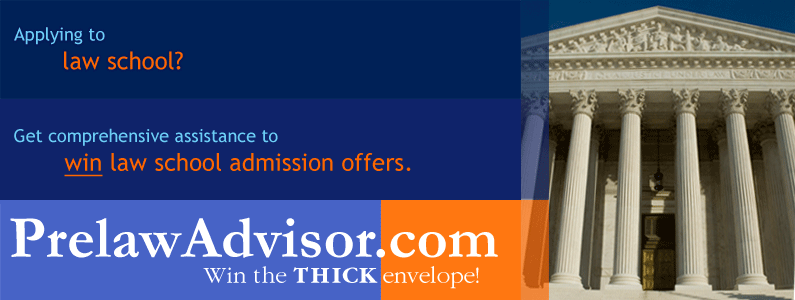I'm a new college freshman, planning on law school in the future. What do I do now?
 Wednesday, September 10, 2008 at 09:33AM
Wednesday, September 10, 2008 at 09:33AM The short answer, one that eventually will greatly distinguish you down the road, is....get great grades. Get great grades. The common pattern of GPAs of college students seeking law school admission in the future, is a bumpy first year, with relatively lower grades, followed by progressively improving grades in the second, third and fourth years of college. But it is clearly those applicants with the very highest GPAs (meaning high grades during the freshman year, as well as the rest of their college years) who break into the top ten--especially the top five--elite law schools. If Yale, Stanford and Harvard have law schools with enrolling student classes in the 3.8 GPA range, you can't afford too many grades lower than an "A".
So, if you want to be the most effective future competitor for a spot at an elite law school, stay focused now, in your freshman year, on all your courses. Do what gets measured. Attend all your classes. Get to know your professors. Do all your reading. Contribute positively to class discussions. Prepare thoroughly for each exam. Seek to discover what your professors' old exams are like. Perhaps they are on file at your school in a way that is accessible to you, such as at your school's library.
In addition, move forward in other ways. Engage your college's community in a creative way. Get involved in activities and projects of interest to you, especially if they can be law-related. Some examples: offer volunteer service to a local legal aid clinic. Just walk in, introduce yourself, and use the magic "v" word: "I'm a new college freshman at (name your school) and I want to volunteer some time to your organization." The doors will spring open. You may be doing low-level clerical work at first, but stay with it, and you will climb the learning curve, and begin to learn the work of the lawyers there. Make yourself indispensable there, with the time you have to give.
Or pick a political or social cause of interest to you, on campus or in the surrounding community. What are you passionate about? What changes would you like to see made to society? What are the organization's lawyers doing? How does the current state of the law affect things? Join in and help out. In the internet age, your potential field of influence is global.
For more assistance in making your plans for law school, please see my website www.PrelawAdvisor.com.
